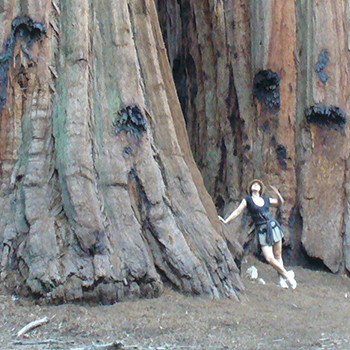
It’s not just about the degree
Grad school is also about becoming the person you want to
The beginning of grad school coincided with a lot of life changes. Grad school was one of them. Moving from Europe to the US was certainly another. However, the biggest life change operated silently, gradually and almost took me by surprise: I became an adult. But importantly, I learned, not without difficulties, how to become the adult I want to be. This blog simply relates my journey through this process, hoping it might resonate with some of you…
Before starting grad school, I had been a student all my life (yes, I no longer consider myself as a student :). From elementary school until the end of undergrad, I was asked to solve given problems, for which I would be rewarded with a good grade if I were to find the right solution. I had more or less been following a pre-defined curriculum relatively well balanced between intellectual and physical or creative activities. I had always been surrounded by friends and students like me, and simply allowed my life to follow the momentum emerging from my interactions. All the big changes (e.g., changing school) always seemed to be for a relatively short period of time. For each of them, I knew I would quickly move on to the next step, meet new people, adapt to the new environment, and soon enough get the right answers to the new problems. In other words, I did not take much time to reflect on my life choices––I didn’t need to.
Then, one day, doing research replaced going to school. The “golden era” where I was given the right questions and the right answers had ended. I had to become the architect of my work, coming up with my own questions, and going after them knowing that there is no such thing as the right answer. It took me a while to adjust to this new dynamic, but I eventually got the hang of it. What we aren’t told, though, is that this mutation is not just for research: years after starting grad school, I eventually realized that the same change of dynamic had occurred in my personal life.
Despite what it may seem, learning how to become a fulfilled adult is to me very similar to learning how to become a (good) researcher. In my personal life, I had to leave a world where I had always had external guidance, encouragement and motivation from my parents, my teachers, my friends… to enter instead a universe where, more or less, I was left with my own foot to kick my butt and my own hand to pat myself on the back. Despite my relatively smooth adaptation to the reality of research, it took much more effort to connect the dots in my personal life.
For a long time, my (everyday) life choices were driven by my professional agenda rather than my personal needs. Finishing an analysis or writing another paragraph of a manuscript used to easily win over exercising, spending quality time with my partner or starting a new craft project. Putting a decision off until the following week was common practice. Not surprising! That is more or less how it had always been—and had always worked out! I was still in the mindset telling me to do my best without looking too much around, because everything else would eventually get carried by the flow of the surrounding momentum…
Except that this time, there was no such momentum. No one, nothing would do the job for me anymore. I could either continue to leave things be, with the strange impression of watching the raft of my life slowly drift, or I could finally put on my architect hat and start building a sturdier ship. Even though I would probably never know the right answer, I finally got to ask myself the right question: “who do I really want to be?”. I did not shift to this new mindset in a blink, though. It took time, but more than that, it required changes of pace, wanted or not. Times where I was forced to slow down, take my head above the shallow waters of the routine, and reflect.
For example, my first change of pace occurred in the middle of my second year, where a big work-related stress got me sick. After building up a long list of arguments calling for a change, I finally dragged myself to a meditation-based stress reduction class offered at MIT (which I heartily recommend). The most striking idea that I kept away from this class was that every one of us has the power to reflect on and influence their present self. As if we could look at ourselves with a compassionate outside eye, making no judgement, but simply acknowledging our wandering thoughts and refocusing them on the essential. A revelation.
In the end, maybe all I’m saying is also a question of age. Maybe all these questions naturally come up in the second half of your 20s. I don’t know. What I know for sure is that every single one of us undeniably arrives at the end of the PhD five years older than when he/she started. It would be a shame not to take advantage of this long journey to also ask ourselves the questions that will bring us closer to the right answer: being a happy and fulfilled human being.
Share this post:
